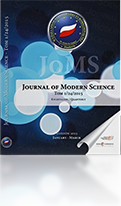Diagnoza pozytywna w działaniach pedagoga jako przykład „dobrych praktyk” w pracy z młodzieżą – propozycje narzędzi diagnostycznych
Positive Diagnosis in Educator’s activities as Case of the Good Practices in the Youth Work – proposals of diagnostic tools
Author(s): Ewa Wysocka Subject(s): Social Sciences, School education, Sociology of Education
Published by: Wydawnictwo Wyższej Szkoły Gospodarki Euroregionalnej im. Alcide De Gasperi w Józefowie
Keywords: diagnosis in pedagogy; positive diagnosis; negative diagnosis; complementary model of diagnosis; diagnostic instruments/tools
Summary/Abstract: The present paper presents a model of diagnosis in pedagogy, as seen from the complementary perspective, i.e. with reference to the assumptions of the salutogenic and pathogenic approaches (positive and negative diagnosis). The current author outlined the theoretical assumptions underlying the suggested model of diagnosis, and described the characteristics of the good lives model (salutogenic approaches), the risk model (pathogenic approaches) as well as the compensatory model. The concept provided a basis for developing a model of diagnosis and diagnostic instruments: Special Abilities Scale (SAS) as well as the Identity and Creative Thinking Questionnaire (ICTQ) devised by Edyta Charzyńska and Ewa Wysocka, the Intrapersonal, Interpersonal and World – and Life-related Attitudes Questionnaire (IIWLQ) devised by Ewa Wysocka. The author of this paper presented the theoretical and methodological basis for creating the aforementioned diagnostic instruments, and described their psychometric properties. It was also suggested that the instruments may prove useful in diagnosis in pedagogy.
Journal: Journal of Modern Science
- Issue Year: 31/2016
- Issue No: 4
- Page Range: 37-62
- Page Count: 25
- Language: Polish

